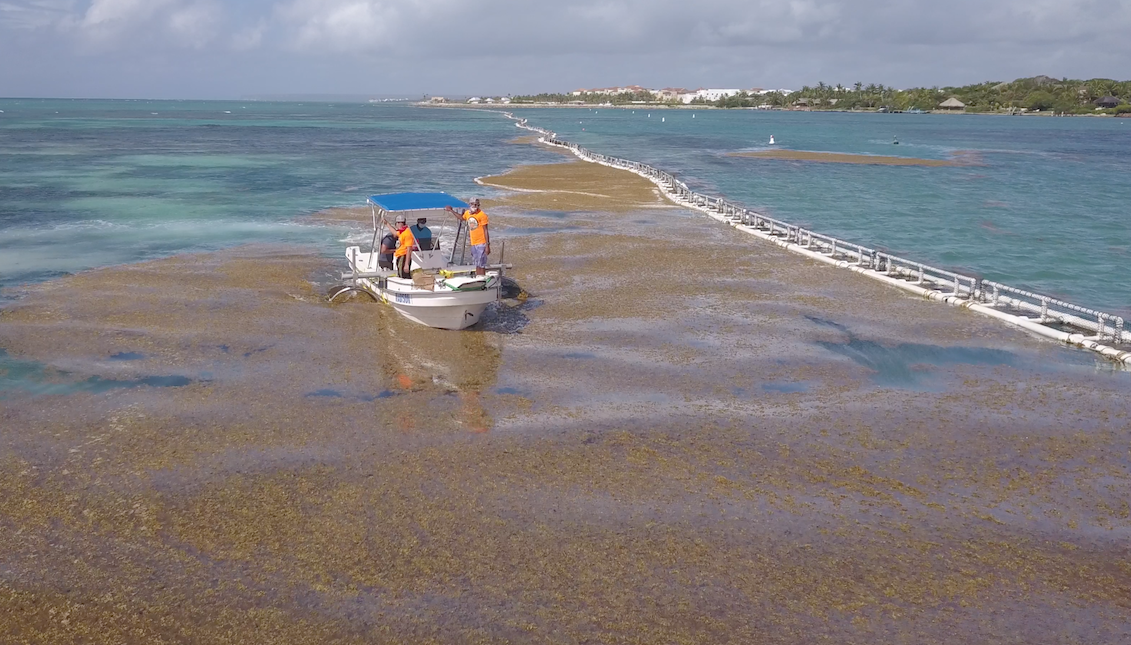
A look back: Haitian refugees as political theater
Sorry, Haitians. It was a good try but most, if not all of you are going back to Haiti. Regardless of how government officials spin it, you're being repatriated because you're illegal, black, and poor with zilch political clout in the U.S and, worse, you're not Cuban.
The United States does have sufficient legal cause to send you back regardless of the humanitarian factor involved. Living in a dysfunctional society that is forever on the verge of collapse is regrettable but it's not enough to win you entry into this country.
Whether by design or by accident it was, nevertheless, great political theater when most of the world watched via the evening TV news, in amusement or in pity, the spectacle of more than 200 Haitians in a rickety, overloaded boat storm the shores of trendy Biscayne Bay in Miami with the U.S. Coast Guard in hot pursuit.
Men, women and children jumped ship, scattering in every which direction, darting in and out of the heavy afternoon causeway traffic with police and the Coast Guard chasing most of them down.
It made some people wonder if the beach assault had been set up by savvy ethnic tacticians eager to pressure and embarrass political candidates and their party leaders on election eve for a more benevolent immigrant policy, particularly for Haitians.
If nothing else, it showed in living color the disparity in U.S. immigration policy involving Cubans and other foreigners trying to sneak into the United States. By reaching the Miami beach, the Haitians would have been home free had they been Cubans because of a privileged "dry feet" policy for Cuban refugees that requires them only to touch U.S. soil to gain legal entry.
Cubans and other refugees are released to community residents while U.S. immigration officials adjudicate their status. Haitians are held in a detention center until they can satisfy U.S. authorities that they are fleeing political persecution and not merely escaping economic hardships.
Most of them can't, nor can they count on sympathetic political and community support, so they wind up on the next plane to Port-au-Prince. Although it received national publicity, Black America mostly ignored it. Haitian issues don't seem to fit the agenda of black activists like the Rev. Jesse Jackson and the Rev. Al Sharpton.
You have to acknowledge the almost perfect timing of this latest attempt that had political candidates and party leaders on election eve scrambling for positions that could help to assuage the issue. For most of them, however, obfuscation became the buzzword.
Everyone started sounding like the old political joke about "half of the people are for it and half of the people are against it and I'm for the people."
President Bush's brother, Jeb, who easily was re-elected as Florida's governor, said during a Miami campaign swing, when cornered by some Haitian partisans, that Haitians should be treated like everyone else — Jamaicans, Bahamians, "people from all over the world." But he didn't mention Cubans.
Ileana Ros-Lehtinen and Lincoln D¡az-Balart, Cuban Americans who represent the Miami constituency in Congress, issued a joint statement saying, "Haitians must get equal treatment" that at closer reading meant treatment like everyone else except the Cubans.
President Bush also got dragged into it after the elections and he was as abstruse as the rest of them. He said Cubans were a special case and Haitians should be treated like all the rest but from now on all the rest would be treated like Haitians.
It became clearer the next day, when the Bush administration announced that henceforth all illegal immigrants, except Cubans, who reached U.S land by sea would be detained just like the Haitians while their cases are being processed. Fair is fair, I guess.
The Bushies said it was a humanitarian gesture to discourage a mass exodus to the United States by reckless seafaring expeditions that many times ended in tragedy.
The Coast Guard has intercepted 3,450 migrants thus far this year, of whom 657 are Haitians. The largest group apprehended has been Ecuadorians, with l,608. The Cubans had 771 who didn't make it to shore. ("Dry feet", remember?) Last year, Haitians led the interdictions with 1,956.
Despite all the political uproar, the current dilemma has not evoked that much public sympathy and support for the Haitians. Save for the Haitian community and some local politicians who tried to capitalize on the issue, the reaction was largely blas‚
Maybe it's because in South Florida, particularly Miami, it seems as if every other person is an immigrant, with or without documents. Floridians seem weary with the endless task of coping with immigration problems and said so during the latest attempt. They particularly dislike the added burden and cost of community services that these immigrants bring.
Unlike the Cubans, another problem for the Haitians are the perceptions that they come as poverty-stricken foreign blacks with little formal education or skills, which, fair or not, marginalizes them even further in the local community.
That must have been on their minds as they languished in the Miami detention center when another group of Cubans roared into the Key West airport in a hijacked plane to the welcoming arms of the U.S. authorities.
EDITOR'S NOTE: In dramatic contrast to the U.S. response to the
million refugees who fled Cuba since Communist revolutionary Fidel
Castro overthrew the island government of dictator Fulgencio Batista in
1959, the United States has effectively blocked Haitians from reaching
our shores in search of refugee status. Between April 15 and Oct.31,
1980, Castro allowed some 125,000 Cubans to depart from Mariel Harbor
to Florida.
They were transported by some 2,011 private U.S. sea
craft, large and tiny, and one airplane to the Florida coast and
eventually offered U.S. citizenship. Even today, Cuban refugees are
allowed to remain here if they land undetected.
On Nov. 24, 2002, in an incident little remembered, 200 Haitians
reached the Florida shore in an aging sea craft, seeking freedom from
that country's oppressive poverty. Longtime Hispanic Link contributing
columnist Carlos D. Conde, of Boca Raton, Fla., wrote the following
commentary for our readers at that time.









DEJE UN COMENTARIO:
¡Únete a la discusión! Deja un comentario.